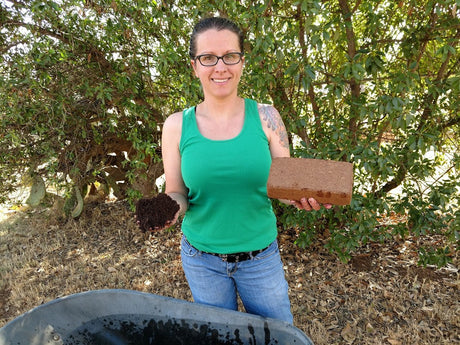
RE: Do You Have Hungry Plants
This is a follow up to our previous post Mary's Heirloom Seeds Quick Links 99 CENT SEED PACK SALE FREE SHIPPING on Garden Necklaces through JUNE 20th...
Mary Smith |
Welcome to our store Learn more

This is a follow up to our previous post Mary's Heirloom Seeds Quick Links 99 CENT SEED PACK SALE FREE SHIPPING on Garden Necklaces through JUNE 20th...
Mary Smith |

Welcome to another day of our series Grow Your own Food in 100 Days or Less at Mary's Heirloom Seeds. On DAY 5 we discussed basic Nutrient Requirements for veggie...
Mary Smith |

We've discussed recycling and composting in the garden a few times. There are many benefits of composting not just for the garden but also for our planet! If you...
Mary Smith |

Have you ever added Oyster Shell Fertilizer to your soil? Wondering WHY we add calcium? Well here ya go! Calcium is a component of plant cell walls, and it’s needed...
Mary Smith |

BONUS: $.99 seed pack sale thru Friday as well!!! SALE HAS BEEN EXTENDED THRU SATURDAY, JULY 9TH HEALTHY, LIVING SOIL In case you missed it, Last week we sent out...
Mary Smith |

If you're growing a veggie garden or you've ever grown a garden then you probably know that nutrients are very important. Sun and soil (and SEEDS) are also important. Nutrients...
Mary Smith |

From Mary's Heirloom Seeds, -Greensand is a mined mineral, rich in soil conditioning glauconite -Contains Potash and other minerals from natural marine deposits -Excellent soil conditioner -Carrying a formulation of...
Mary Smith |

We've already shared our Alfalfa Meal tea so today we're making KELP tea. This is especially important if you plan on planting Organic Garlic this year. What is KELP...
Mary Smith |

From Mary's Heirloom Seeds, Give Plants the Vital Minerals They need to Thrive Great soil additive for all plants Azomite rock dust is a naturally mined volcanic rock composed of...
Mary Smith |

Have you ever used Alfalfa Meal in your garden? We have used organic alfalfa meal in our garden and compost bins/piles for years. It’s great stuff! More and more customers...
Mary Smith |

We'd like to bring your attention to several of our Vegan (non-animal) Organic Plant Food options available at Mary's Heirloom Seeds. Many of you have inquired so we thought it...
Mary Smith |

I guess I should start out by explaining the term "heavy feeder." In garden-speak, a heavy feeder is a plant variety that requires more nutrients than your average plant. For...
Mary Smith |

Before I give you my recipe I need to be very clear. ALFALFA is considered a "high risk crop." This means that Alfalfa is on of the top 10 Genetically...
Mary Smith |